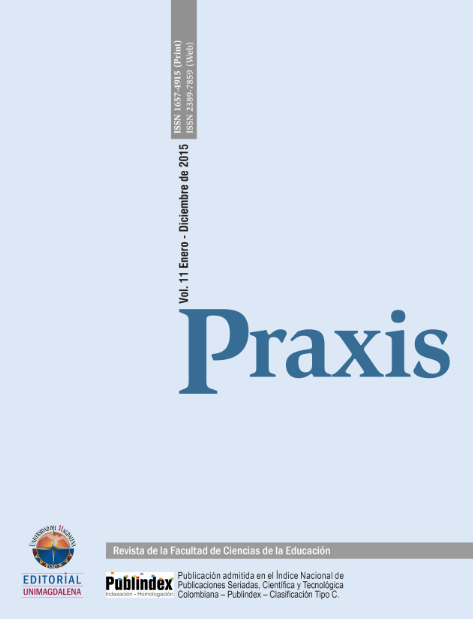Education: right or service? Cases Colombia and Cuba
Main Article Content
Abstract
The following research aims to demonstrate how in Colombia's conception of the right to education as a service seen since the constitution has made the right lose features like the universality and inalienability while in the Cuban case the conception of the right to education as a law inherent to all Cubans and commitment to the state and the family will get in the training of new generations has made Cuba a nation integrated to ensure the fulfillment of the rights of Cubans and foreigners who have managed to benefit from scholarships that this nation offers. We seek different aspects and implications about these models from cases studies.
Downloads
Article Details
References
Banco mundial. (2013). BANCO MUNDIAL. Recuperado el 30 de 05 de 2013, de http://datos.bancomundial.org/indicador/SE.XPD.TOTL.GD.Zs
Constitucion politica de cuba. (2013). CONSTITUCION POLITICA DE CUBA. Recuperado el 13 de 09 de 2013, de http://www.cuba.cu/gobierno/cuba.htm
Declaracion universal de los derechos humanos . (1948). Recuperado el 5 de 07 de 2013, de http://www.un.org/es/documents/udhr/index.shtml
Educacion, M. D. (2003). REVOLUCION EDUCATIVA 2002-2010. Recuperado el 28 de 04 de 2013, de http://www.colombiaaprende.edu.co/html/home/1592/articles-229014_pdf_memorias_rev.pdf
Indexmundi. (2013). INDEXMUNDI. Recuperado el 10 de 06 de 2013, de http://www.indexmundi.com/g/r.aspx?v=67&l=es
Lamarra, N. F. (2002). Obtenido de http://eco.mdp.edu.ar/cendocu/repositorio/00098.pdf
Meller, P. (2011). sinaptenia. Recuperado el 08 de 05 de 2012, de sinaptenia: http://www.lasnibat.com/2011/07/costo-y-financiamiento-de-la-educacion.html
Nussbaum, M. (2010). Sin fines de lucro, porque la democracia necesita de las humanidades. Buenos Aires: Katz 2010.
Proverbia. (2012). Recuperado el 01 de 08 de 2013, de http://www.proverbia.net/citasautor.asp?autor=244
Radio, C. (07 de 09 de 2007). Caracol Radio. Obtenido de http://www.caracol.com.co/noticias/entretenimiento/mineducacion-el-analfabetismo-en-colombia-es-mayor-del-que-se-creia/20070907/nota/477314.aspx
Riocuartoinfo. (2011). RIO CUARTO. Recuperado el 25 de 05 de 2013, de http://www.riocuartoinfo.com/notas/11307-chile-alto-costo-de-la-educacion-empuja-a-estudiantes-a-argentina.html
Salazar, A. B. (2012). Derecho: ¿cuál derecho? de la constitución burguesa a la constitución de nueva democracia. España: Editorial Académica Española.
Sandoval, F. E. (2009). SCRIBD. Recuperado el 05 de 06 de 2013, de Historia de la educación en Colombia: http://es.scribd.com/doc/17550171/HISTORIA-DE-LA-EDUCACION-EN-COLOMBIA.
Semana, R. (2008). Uno de cada cuatro colombianos cree que no puede acceder a la educación. Revista Semana. Recuperado el 25 de 05 de 2013, de http://www.semana.com/nacion/educacion/articulo/uno-cada-cuatro-colombianos-cree-no-puede-acceder-educacion/97488-3
Semana, R. (2009). Gratis educación para todos los estudiantes de Bogotá, a partir del 2010. REVISTA SEMANA. Recuperado el 25 de 05 de 2013, de http://www.semana.com/nacion/desarrollo-urbano/articulo/gratis-educacion-para-todos-estudiantes-bogota-partir-del-2010/105907-3
Worldbank. (2011). WORLDBANK. Recuperado el 12 de 07 de 2013, de http://siteresources.worldbank.org/DATASTATISTICS/Resources/POP.pdf

